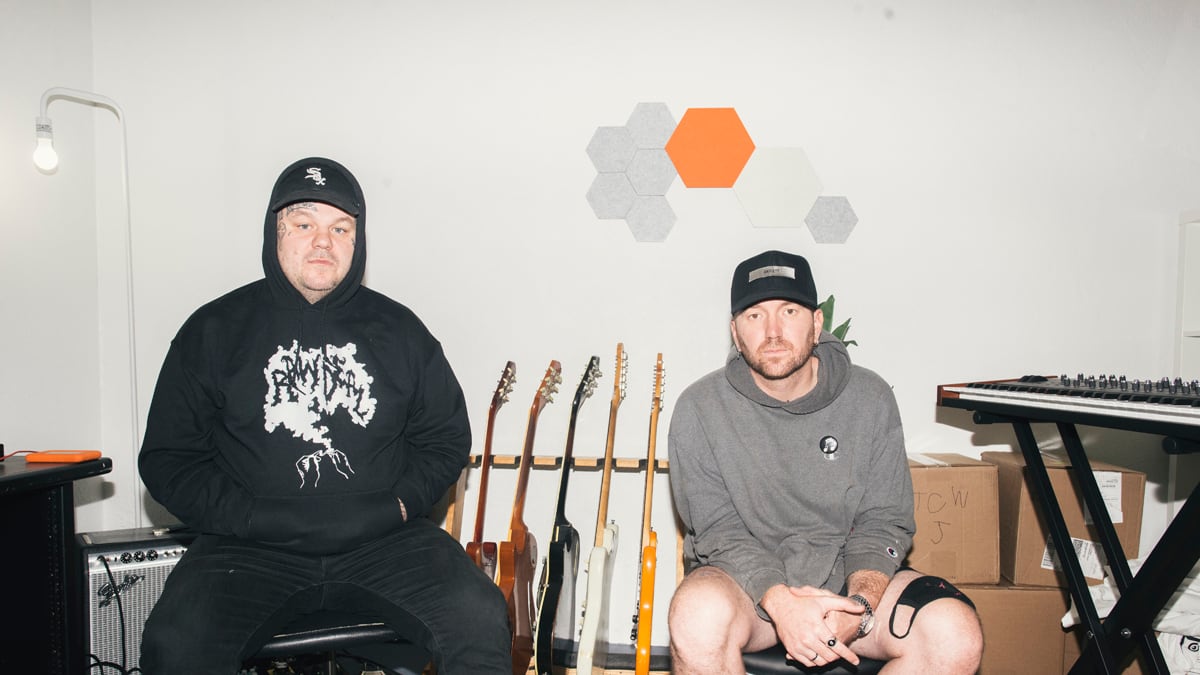4. Soft Kill
SOUNDS LIKE: What a world-worn, leather-clad DJ might spin at a 1982 prom.
The phrase "soft kill" doesn't exactly have feel-good connotations—its various associations include military missiles and chemtrail conspiracy theories.
But when frontman Tobias Grave decided to name his band Soft Kill, he had something much more lighthearted in mind.
"I always wanted to write pop songs," he says.
Still, Soft Kill's doom pop doesn't claim to offer any straightforward resolution to its subject matter. Instead, true to Grave's own experience, it dives into darkness and illuminates moments of catharsis hiding in the shadows.
Nearly a decade ago, immediately following the release of their well-received 2011 debut, An Open Door, Soft Kill screeched to a halt. At the band's genesis, Grave was battling addiction to crystal meth and heroin.
"When I took a break," he says, "it was kind of imperative for my own personal survival."
Grave kept working on demos while he was working on recovery, and despite Soft Kill's intentionally "ignorable" name, the band managed to develop an online fan base. After a three-year hiatus, Soft Kill reemerged in 2014 with drummer Maxamillion Avila, keyboardist and bassist Owen Glendower, and guitarist Conrad Vollmer.
The band's music embodies the paradox of its name. Layered over moody yet hopeful shoegaze sounds and carried through Grave's rumbling vocals, the introspective lyrics meld gloom with tenderness. Through his songwriting, Grave grapples with the fragility of life by laying bare such personal traumas as addiction and loss.
This April, Soft Kill released Premium Drifter, an album of demos that didn't make the cut for their upcoming fourth LP, Dead Kids, R.I.P. City. The title is a morbid spoof on Kendrick Lamar's good kid, m.A.A.d city album and Portland's "Rip City" nickname. Despite the tongue-in-cheek origins of its name, the album grapples with the city's opioid crisis and pays heavy-hearted homage to the people the band's members have known who have died battling drug addiction in the streets.
"I'm battling drugs and getting time clean, and it's affecting how I view the world and my relationships," says Grave. "But [I also have] the survivor's guilt mentality of, like, 'Why did I survive, and all of these people that I hold in such high regard—as artists and otherwise—didn't?'"
That doesn't mean the album is entirely a downer, though.
"[Soft Kill's sound] used to be very minimal and cold," says Grave. "[It] has become a little more complex, a lot more triumphant-sounding at times."
Best New Bands 2020
1. Maita | 2. Raquel Divar | 3. Methods Body | 4. Soft Kill | 5. Bryson Cone | 6. Sea Moss | 7. Marcus McCauley | 8/9/10. Spoon Benders | 8/9/10. Mope Grooves | 8/9/10. Mo Troper
Four Portland Music Community Leaders Speak on the Scene's Role During the Protests
